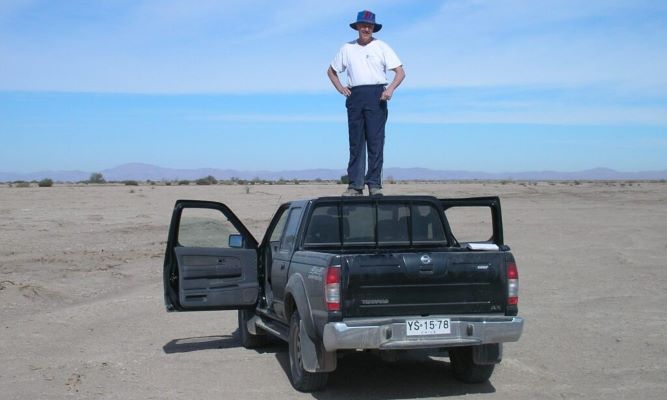Choosing a Program
The Center for Field Sciences is offering a range of programs in multiple field disciplines. It is not always easy to choose the program that best fit your individual needs. Below are some elements you should consider before selecting a field school.
program type

CFS offers programs in a range of field sciences – Archaeology, Zooarchaeology, Bioarchaeology, etc. If your major is in one of these disciplines, attending a program in your discipline will go a long way towards illuminating theoretical and methodological issues your learned in the classroom. You may also be able to transfer the credit units towards your major requirement, saving time and graduating faster with the field school credits.
Field Work & Research

Scientific research is the result of prolonged, hard work. It requires patience, creativity, and perseverance. In the field, research also involves physical work where researchers are exposed to the elements and challenging conditions. In you can walk 4 miles (6 Km) and carry a 30 pounds (15 kg) backpack, you are probably fine for most archaeology field schools. But if the above is a challenge for you, think carefully before you commit to a field program.
Cultural Resource Management Career?

Finding academic positions is increasingly difficult. Few positions are open and there are many highly qualified applicants. But there is a sever shortages in the private & government archaeology sector – known collectively as Cultural Resource Management (CRM). Reports from the Twin Cairns CRM Job Board indicate excellent wages, rapid paths for career growth and generous benefits. If you wish to pursue a career in CRM, choose a program that helps you get the best jobs in that sector.
Program Cost

Field schools are not cheap – they are a significant investment in your future. Field school cost varies between programs and travel is almost never covered. Most programs cover room and board, but not all. Many programs do not cover the cost of meals during the weekend, a cost that may reach $75 per weekend. Finally, the cost of traveling to the program’s official meeting point may be significant. Carefully look at the cost of a program and what it covers before submitting an application.
Academic Credit

CFS field schools award students with 8 semester credit units – equivalent to 12 quarter units (some of our short programs award only 2-4 semester credits). If you can transfer the credit units to your home university, the cost of the field school may be offset by the cost of the credit units you would have to pay for at your home institution. Always seek advice from officials at your home university – Undergraduate advisor, Study Abroad advisor, etc. Make sure you understand how to transfer the credit units to your record and whether they will be counted towards your major.
The World is your oyster

For many students, a field school is also an opportunity to visit a part of the world they always desired to see. So, where the field school is located is always an important consideration. Alas, most field schools are in remote areas so if you wish to visit major cities while in-country, see if you have enough time to do so on weekends. If not possible – too far from where you wish to visit – take some time before or after the program. Remember that by the end of the program, you will likely make local friends, understand the local culture better and maybe even learn some important local words. It is, therefore, safer – and usually better – to travel after the program.
